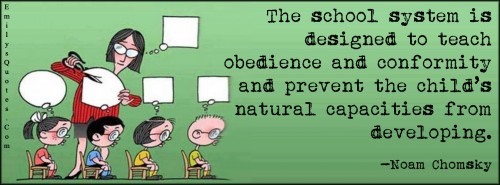One of the key messages that I took from this video is that an exceptional teacher is one who is truly passionate about what they do. A passionate individual who takes pride in their job will not be satisfied just doing the bare minimum. They will be dedicated and motivated to continually grow within their own skills and knowledge so that they, in turn, can support others.
Another point which I found interesting was that this video makes comparisons between doctors and teachers. It isn’t common to think of teaching as being as vital as medical care but without a sound education, an individual’s life chances may be severely damaged. In the same way as with doctors; teachers cannot work half-heartedly or even have an ‘off day’ as this could have a potentially irreversible impact on the pupils.
Teamwork is highlighted as an essential element within both professions. I think that a professional needs to be willing to seek and accept help from others as well as providing help and support where needed. It is only through this teamwork and interdisciplinary working that pupils can be given the greatest opportunities throughout their education. A professional teacher cannot be selfish. There is a lovely example of this on the above video where a teacher learns of new methods about teaching maths. Instead of keeping this to herself, perhaps seeing the benefit within her pupils and receiving praise for herself; she shares the information with others. This leads to a team of teachers who are all able to provide superior lessons and teaching to their pupils.
Finally, a professional teacher must strive to keep up to date. The GTC standard for career-long professional learning says that a teacher is:
Committing to lifelong enquiry, learning, professional development and leadership as core aspects of professionalism and collaborative practice
There is continual research and new findings which impact education, however if a teacher does no embrace new ideas then they cannot provide the highest quality of education to their pupils. While working within nurseries, I witnessed a changed from Continuing Professional Development (CPD) to Career Long Professional Learning (CLPL). This emphasises to me the fact that a teacher can never stop their personal learning and development.
This video shows that the idea of being ‘professional’ involves a wide variety of issues.
Miss Catherine Long mentions the teacher’s role within a society. She points out that benchmarking and statistics which are available to anyone who wishes to see them causes added pressures on teachers as they are being compared and valued by their ability to make their pupils pass tests.
Mrs. Nursen Chemmi reinforces the importance of professional, appropriate behavior. Teachers act as role models for their pupils and displaying desirable traits within themselves will reinforce these behaviours within the children. I believe that this does not refer to the classroom only, rather that teachers should conduct themselves in a professional manner in any situation where they are in public. (This connects with my previous post about social media.)
Mrs Colleen Walsh adds that teachers must be non-judgmental. It is not appropriate to treat a child differently according to their home situation. This does not mean that the teacher should be ignorant of the situation or even ignore it; they should instead aim to support every individual child while being mindful of any issues or potential challenges.
Mrs Erin Smith talks about the importance of communication. This is connected with teamwork and interdisciplinary working. She also makes the link between effective communication and relationships, saying that this professional manner will allow teachers to help parents, families and pupils.








